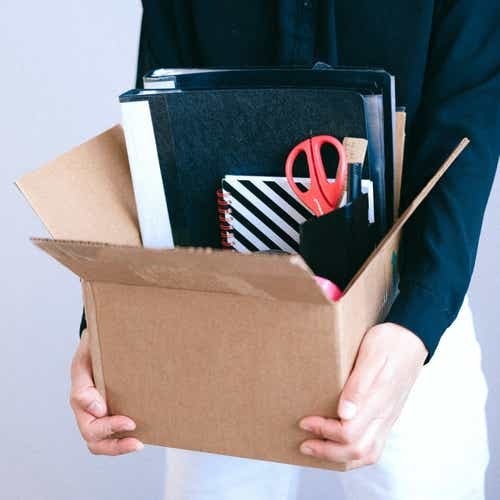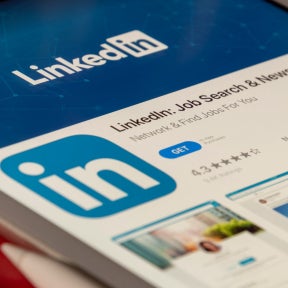How To Prepare For a Layoff:

Our complete guide with informative steps on how to prepare for a layoff.
Do not panic.
Stay busy and reassure yourself that things will improve.

If your company is announcing layoffs, the first thing to remember is not to panic. While losing your job can be a traumatic experience, this is the time you should focus on networking and improving your skills.
Your qualifications and experience will be useful to someone. Also, remember that layoffs may be temporary and avoided altogether if the company is able to create financial stability.
Be honest with yourself and your family.

If you are being laid off, the fact is that you may not have a job for a while. The sooner you come to terms with this information the better. Tell your family as soon as possible so that everyone can prepare for leaner times. Your family is your support and should be kept in the loop no matter what happens.
Demonstrate your value.

If your company has decided to layoff employees, it means they are reorganizing their workforce to avoid financial collapse. Only the most essential employees will be kept on board to keep the company afloat. This is your time to prove your worth.
If you have received a layoff letter, there is still time to prove to your company that your position is integral to the functioning of the business. Demonstrate your value in a way that cannot be ignored. You may just find your employment extended for weeks, or possibly years.
Collect all your essential items.

News of a layoff can knock you off-kilter. If you're anticipating getting laid off, start gathering your personal belongings so that you don't forget anything when the time comes to leave.
If you're unable to take things home, keeping them in a drawer, locker, or at your desk will make it easier to gather them, especially if you're laid off with immediate effect.
In addition to personal items, be sure to collect any forms you need from HR, as all as copies of performance reviews, work samples, and other documents. You may not want to return to the office to fetch them after your last day.
Do your research.
Know your rights.

If you receive a layoff letter, be sure to read your employment contract and the documents you signed when you were hired. These documents will stipulate any benefits you may be entitled to when you leave. Make sure you are getting paid out for unused vacation days, sick leave, or money owed.
Check company policies.

It is also important to check the company policy on severance packages. Find out what previous employees received and don't be afraid to negotiate for improved benefits. If your company is conducting mass layoffs, be sure to check if they are complying with the WARN Act.
Organize your health insurance.

If you receive health insurance through your employer, you will need to make some important decisions on what to do when you are laid off. Doing research on private and government health insurance will give you an idea of what you and your family can afford going forward. Everyone's needs are different so there is no one answer that fits all situations.
If your health insurance benefits end upon termination of your contract, make full use of your subsidized healthcare plan while you can. Make that dental appointment, fill that prescription, or do that physical you've been putting off.
Find out about your employee benefits.

Before you are laid off, find out about any unemployment benefits you may be entitled to. Benefits vary by state which is why you should find out the facts before you create a budget.
In some states, unemployment checks are taxed, reducing your income even further, so take this into account.
Get your finances in order.
Pay off your debts.

When you are earning a steady salary, your debts can be paid off at a steady rate over a period of months or years. If you are expecting to be laid off, you should endeavor to pay off your debts as soon as possible. Your finances will be under severe strain and the most effective way to save money is to not pay interest on purchased items.
Reduce your expenditures.

When you are laid off, you will have reduced finances for an undetermined period of time. While you may receive unemployment benefits, it is imperative to reduce your expenses as soon as possible.
Sit down and make a budget for yourself and your family. Find out where you can reduce your spending without drastically altering your lifestyle In some cases, it simply means temporarily suspending your gym membership, not going out to dinners, or holding off on that vacation you have been planning for a year.
Start an emergency savings fund.

While you still have a paycheck, it is important to start an emergency savings fund, even if you might not use it. Layoffs can be temporary or permanent, and having a "rainy day fund" will help get you through the lean months.
Contact your creditors.

If it is not possible to pay off all your debts, it may be a good idea to contact your creditors when you receive a layoff letter. Even if you are able to make your payments each month, letting your bank know you are being laid off will give you some leeway with how and when your payments can be made.
Many banks and creditors have special provisions for customers who are being laid off. In some cases, payments can even be "halted" for a certain period of time.
Improve your chances of finding employment.
Build a network.

If you are anticipating losing your job, you can improve your chances of finding employment by building a professional network. Get in touch with company contractors, former colleagues, or anyone you might know in the industry. Attend events, and invite potential contacts for coffee. You never know what opportunities might come up when you meet the right people.
Research opportunities in your field.

Even if you love your job and have no plans to move on to another company anytime soon, keep an eye out for opportunities and don't lose touch with what's happening in your current field.
The more knowledge you have about what employers are looking for, the easier it will be to start applying for jobs if you find yourself out of work due to unforeseen circumstances.
Registering with online job boards will help you stay current on industry trends by emailing available job posts to you. Reading through job descriptions will help you get familiar with what companies expect for positions that may interest you in the future.
Advance your skills.

Ideally, all employees should be constantly updating their skills and certifications throughout their careers. Take advantage of any courses or certifications offered by your company or one of your networking partners. You can also find free online courses that you can do at home.
You may receive a job over a candidate with more experience if you have the necessary skills and certifications required for the position.
Keep your resume up to date.

The best time to update your resume is before you are laid off. As soon as you start networking, you should have an updated version of your resume prepped and ready to send out to anyone interested in your skills. If you have completed any recent training or certification course, be sure to include this in your resume.
The ability to work remotely has become essential since the COVID-19 pandemic. Even if you've never held a fully remote job, you probably have some skills and experience that are vital to remote positions. Be sure to highlight communication skills, your ability to work independently, and your experience using software such as Slack and Teamwork.
Ask for a letter of recommendation.

Before you leave your employment, ask for a letter of recommendation from your department manager. A favorable recommendation is a great asset to have when you are seeking employment and trying to impress the hiring manager.
Seek alternative employment.
Start looking for employment early.

Don't wait until you are laid off to start looking for another job. Use the resources and people around you to seek alternate employment as soon as possible. Even if your company is able to avoid layoffs, you may just be offered a better position in a more financially stable company.
The COVID-19 pandemic has caused many to consider a career change. Perhaps diving headlong into a job search is not the way forward for you. In this case, you may need to return to school or obtain additional certifications before you can move to another field.
Keep a positive attitude.

Being laid off is emotionally taxing. Aside from the financial strains, many people also struggle with issues of self-worth when they lose their job. Keeping a positive attitude is essential when you receive a layoff letter.
While there may be hard times ahead, stay focused on improving your skills, and getting your resume out there. Remember that you have the experience and skills to get the job you want.
Don't burn your bridges.
Maintain your professionalism in the workplace.

If you're anticipating a layoff or you've already been given notice, don't take it personally and behave in an unprofessional manner towards your employer or other staff. Refrain from saying negative things about your colleagues as they form part of your professional network and can still share valuable resources with you.
Even after you've left a job, do not speak ill of previous employers in an interview. This is unprofessional and potential employers might know staff at your previous place of work. In addition, bad-mouthing past employers creates the impression that you would pass negative comments about colleagues at your new place of work, too.
Make a list of professional contacts.

Post-employment networking starts at your current place of work. If you don't already have the contact numbers and details of people you'd like to keep in touch with, be sure to obtain these before you leave. Get references from your colleagues and supervisors and offer to write references for them, too.
Former colleagues can provide support and information that's useful in your job search and further down the line in your career. Keep in touch with as many of them as possible. LinkedIn can help you stay connected.

